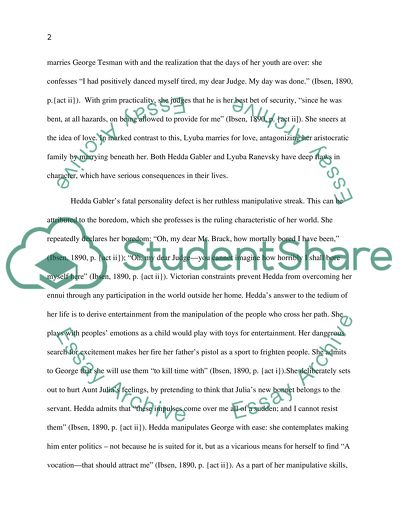Cite this document
(“Lyuba Ranevsky's and Hedda Gabler's: Character Flaws Essay”, n.d.)
Retrieved from https://studentshare.org/literature/1447037-compare-madame-ranevsky-s-and-hedda-gabler-s
Retrieved from https://studentshare.org/literature/1447037-compare-madame-ranevsky-s-and-hedda-gabler-s
(Lyuba Ranevsky's and Hedda Gabler'S: Character Flaws Essay)
https://studentshare.org/literature/1447037-compare-madame-ranevsky-s-and-hedda-gabler-s.
https://studentshare.org/literature/1447037-compare-madame-ranevsky-s-and-hedda-gabler-s.
“Lyuba Ranevsky's and Hedda Gabler'S: Character Flaws Essay”, n.d. https://studentshare.org/literature/1447037-compare-madame-ranevsky-s-and-hedda-gabler-s.


